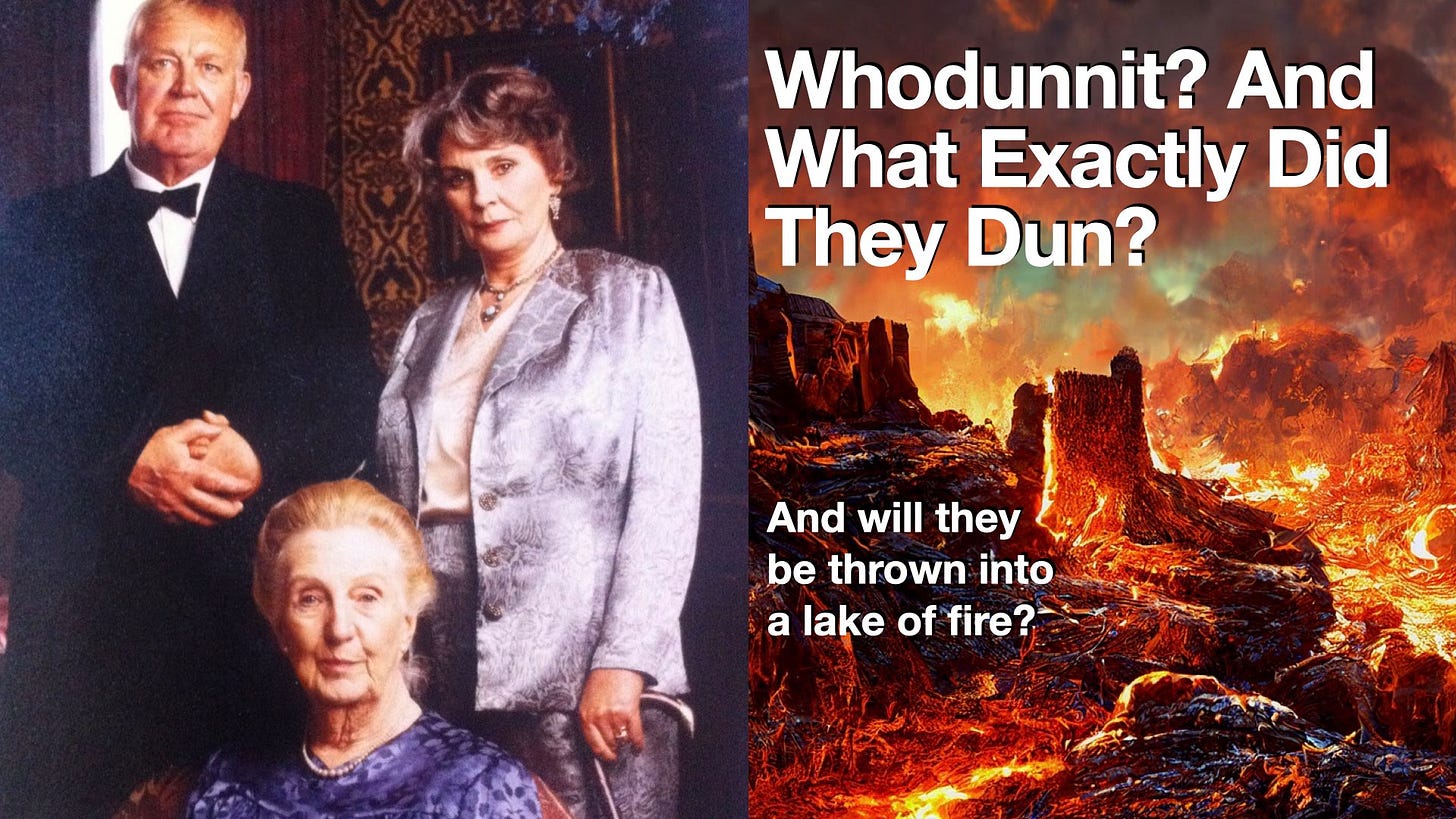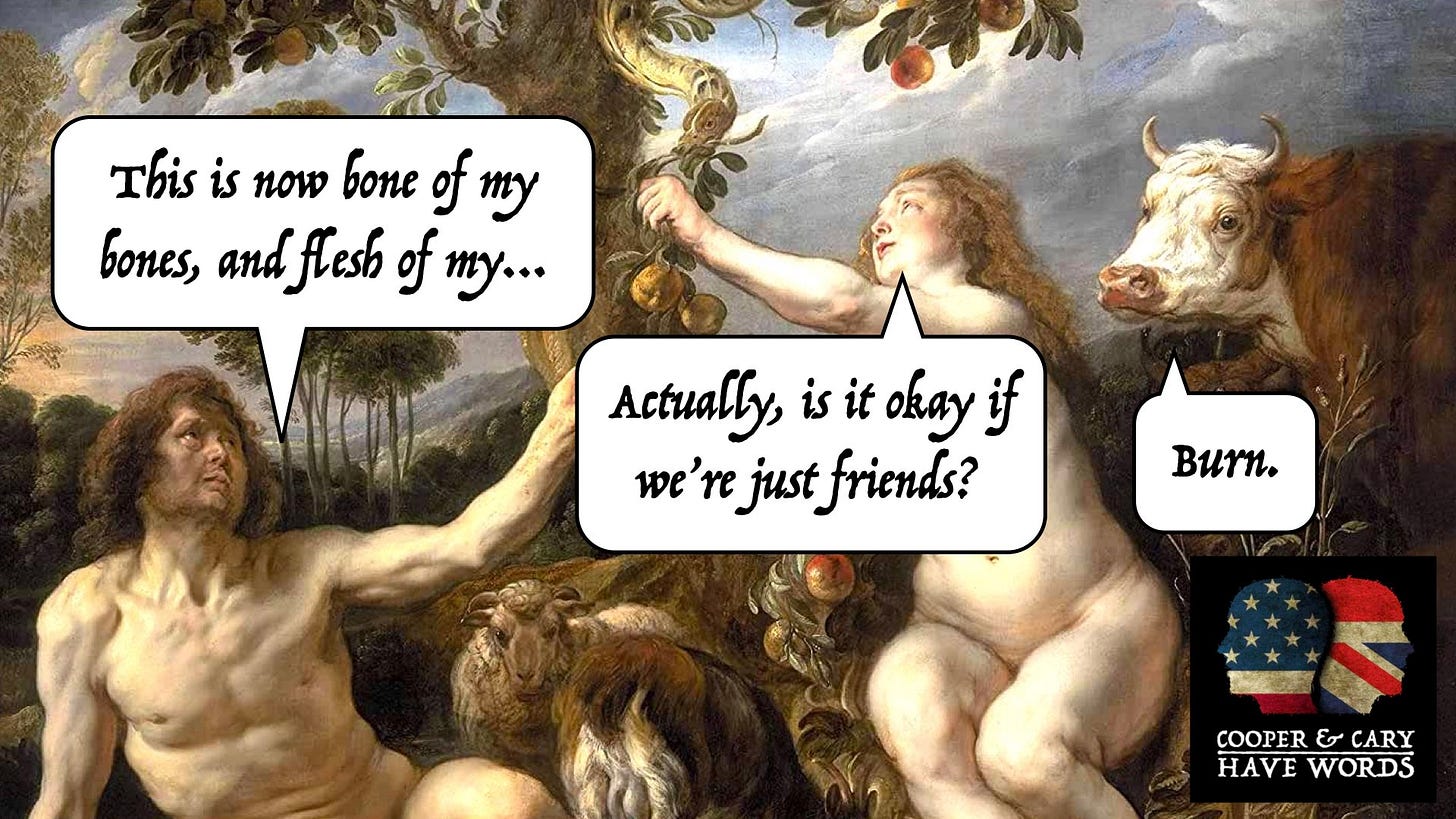The suspects are all gathered together in the library or the drawing room. The sleuth goes around and accuses them all in turn, explaining how each of them had a motive to murder, and the means to do it. Finally, the truth will out.
Stick to this format and your murder mystery should do very well, like the ITV adaptations of the Hercule Poirot mysteries or more recently, the BBC’s consistently popular Death in Paradise. In both cases, the scenery and setting is inviting and sumptuous, and the puzzle of the whodunnit is intriguing. But it is the great unveiling at the end that gives us that hit of justice we crave. After all, we all know that human life is sacred and the taking of that life must be brought to justice.
As the detective explains the events of the last few days or weeks, every little action or deed turns out to be significant. Tiny moments that seemed inconsequential suddenly matter. A misplaced vase of flowers, a letter with a slightly incorrect address, or clock discovered to be five minutes slow all become incredibly important and could condemn the villain.
When this great unveiling is done poorly, it is immensely frustrating. I recently watched the 1991 adaption of Agatha Christie’s They Do It With Mirrors. When all was apparently revealed, I was left with more questions than answers. It really was very hard to work out who they were and what they had done, let alone how they did it with mirrors. So many details were left unexplained and I felt like I’d wasted two hours watching this episode.
Sweating the Small Stuff
Small things matter. The inconsequential details of our lives stay with us. We might fret all night about one thing we said or did. The actions of someone decades ago might still live with us. Even just a phrase of condemnation or a misplaced joke.
I mention this because I’ve recently been reading a troubling part of Mark’s gospel. In Mark 9:43-48, Mark writes:
“If your hand causes you to stumble, cut it off. It is better for you to enter life maimed than with two hands to go into hell, where the fire never goes out. And if your foot causes you to stumble, cut it off. It is better for you to enter life crippled than to have two feet and be thrown into hell. And if your eye causes you to stumble, pluck it out. It is better for you to enter the kingdom of God with one eye than to have two eyes and be thrown into hell, where the worms that eat them do not die, and the fire is not quenched.”
Yikes. One wrong action, one inconsequential deed catapults us into a lake of unquenchable fire?
At first, this looks like the worst parody of Christianity one could imagine, a form of the faith that has been rejected by our society. One false move of the hand or foot, a blink of an eye, and you’re thrown into the fiery lake of hell. These are not the words of Jesus we tend to emphasise in our current culture which takes pride, in every sense of the word, in being non-judgemental.
So why did Jesus say these words? As is so often the case, the key to this mystery can be found by taking a step back. Appearances can be very deceptive. This is not to deny the reality of eternal hell, or that individual sins are extremely grave. There is a broader picture here. Zoom out and look at the verses before:
“Teacher,” said John, “we saw someone driving out demons in your name and we told him to stop, because he was not one of us.”
“Do not stop him,” Jesus said. “For no one who does a miracle in my name can in the next moment say anything bad about me, for whoever is not against us is for us. Truly I tell you, anyone who gives you a cup of water in my name because you belong to the Messiah will certainly not lose their reward.
Jesus’s disciple John has dobbed in some random guy doing grand gestures beyond his pay grade, in this case driving out demons. Jesus affirms those grand gestures, but what he says next is very surprising.
Jesus does not say, “Go and do likewise, John. You should be doing miracles in my name! Would it kill you to drive out some demons now and then?”
No. (Actually, at one point, Jesus does send out the twelve to do just that. But that’s not what happens here.)
Jesus radically lowers the bar. He says that anyone who gives a fellow believer a mere cup of water will not lose their reward. It’s not about grand gestures. The mission trips. The healings. The mighty ministries. The books. The big speeches of truth to power.
The Little Things
It’s about the little things. The small actions and the inconsequential details. The cups of water to fellow believers. These are what truly matter to God. And they are noticed by him.
Jesus should know. Who did grander gestures than the one who died on a cross, rose from the dead and ascended into heaven? His life is littered with events where he does all kinds of astonishing things.
Yet when I perform my Water into Wine show, I can see that no-one is all that impressed by Jesus’s stupendous miracles. We look at the seven signs in John where he changes water into wine, feeds five thousand people, walks on water and raises Lazarus from the dead. Whatever. It is his consistency of character that seems to stay with people. In my experience, it is the character of Jesus that people find most attractive and alluring.
As such, Jesus is the only one who can bring about the justice that we crave, that we mostly find in that final scene of a murder mystery. But when Jesus returns, all will be revealed. Will we be shown to be those who ‘belonged to the Messiah’? We need to get ready for that grand finale.
I plan to keep doing Water into Wine until Easter 2023. How about a performance at your church? Find out more by getting in touch.
When Harry Met Sally
Can men and women be truly friends? And what about the dreaded ‘friendzone’ Barry and I heard some really challenging insights from Aaron Renn on the Cooper and Cary Have Words podcast.






